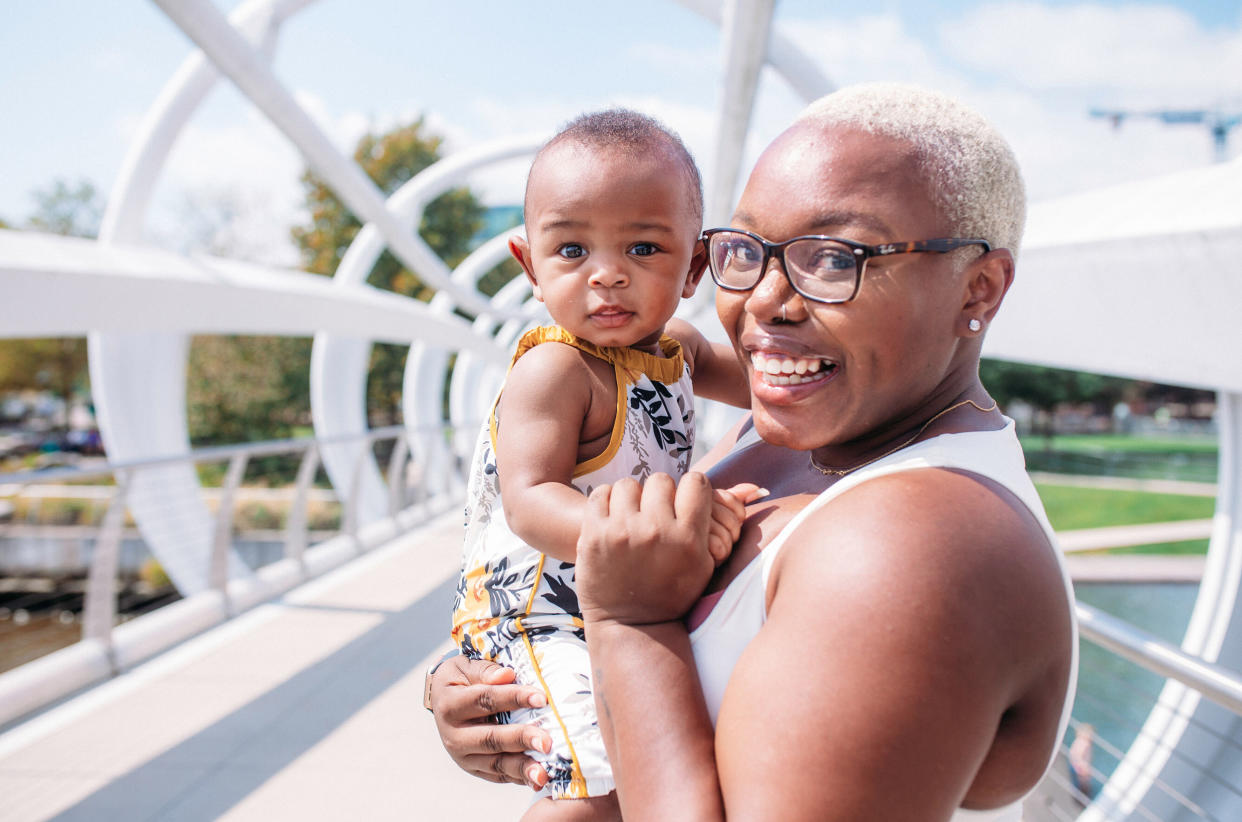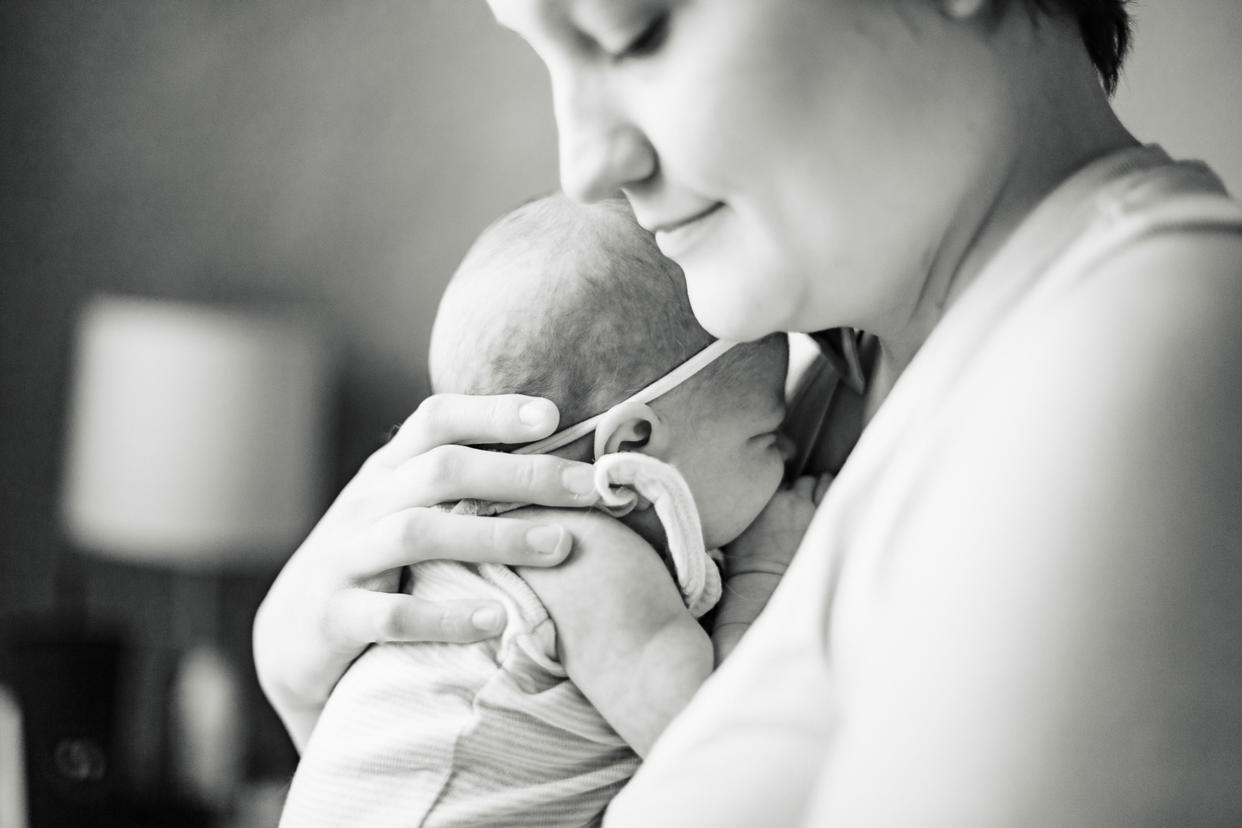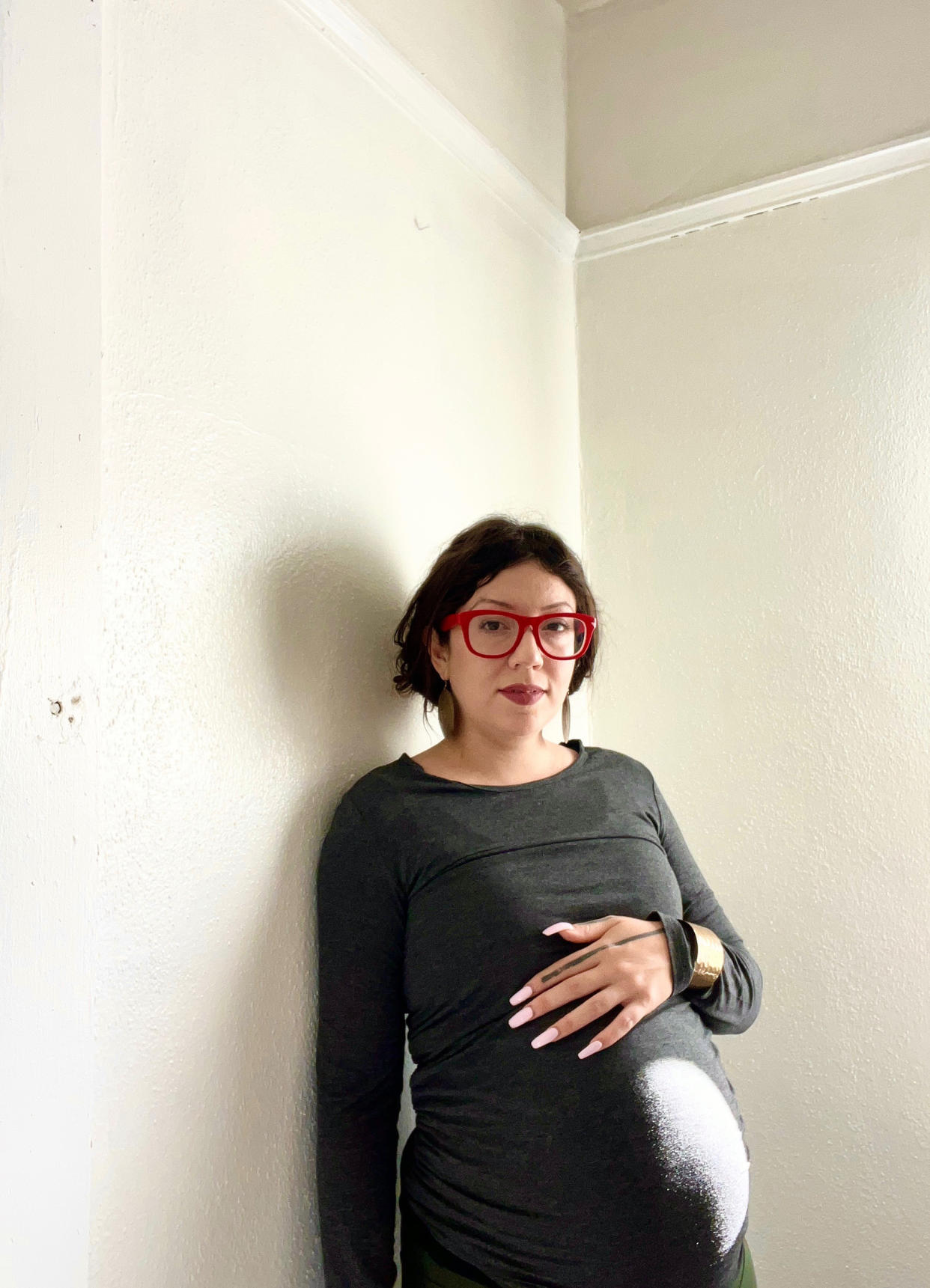Selena Gomez Shared Fears About Pregnancy And Bipolar Disorder
This story discusses suicide. If you or someone you know needs help, please call the U.S. National Suicide Prevention Lifeline at 800-273-8255, text HOME to 741741 or go to SpeakingOfSuicide.com/resources for additional resources.
After Selena Gomez shared how she fears treatment for her bipolar disorder will inhibit her ability to carry a pregnancy to term, moms are sharing their own personal experience with bipolar disorder, pregnancy and parenthood.
In a Nov. 3 interview with "Rolling Stone," Gomez shared that after visiting a friend who "was trying to get pregnant," she got in her car and cried. The two drugs she takes for her bipolar disorder "means that she likely won't be able to carry her own children," Rolling Stone's Alex Morris wrote.
"That’s a very big, big, present thing in my life," Gomez told the magazine, adding that “however I’m meant to have them, I will.”
An estimated 500,000 U.S. pregnancies every year involve women who have a psychiatric diagnosis, according to the American College of Obstetricians and Gynecologists (ACOG).
"There are medications that you can use during pregnancy and it's not just safe, it's recommended that somebody with bipolar disorder stays on their medication during pregnancy," Dr. Tiffany Moore Simas, M.D., chair and professor at the Department of Obstetrics and Gynecology at Mass Memorial Health, told TODAY.
"There is a stigma around taking medication during pregnancy, but you cannot have a healthy baby if you do not have a healthy mother," she added.
About one in 25 people, 4.4% of adults in the United States, will experience bipolar disorder at some point in their lifetime, according to the National Institute of Mental Health.
“Having cared for many women with bipolar disorder, I can say they often feel very stigmatized because they feel they exist in some other category of mental health conditions,” Lucy Hutner, a reproductive psychiatrist practicing in New York City, told TODAY Parents.
“A lot of the time people with bipolar disorder feel like they exist in the shadows,” she added.
Hutner said her patients face two types of stigma most frequently: The idea that being diagnosed with bipolar disorder means you cannot be a good parent, and the idea that you shouldn't take medication during pregnancy. Both are untrue, she said, and she added she has many patients who stay on their medication have healthy pregnancies, healthy babies and go on to be loving and caring parents.
“The truth is, bipolar disorder is a mental disorder. A lot of people have mental disorders,” Hutner explained. “It does not preclude you from becoming pregnant and it does not preclude you from becoming an excellent parent.”
TODAY Parents spoke to four people about their personal experiences with bipolar disorder, pregnancy and parenting. Their comments have been edited for brevity and clarity.
Ashleigh Owens, 30, Maryland
Owens was 28 when she received her bipolar diagnosis, though she says she likely had the disorder for much longer. She found out she was pregnant three weeks after her diagnosis and considered terminating her pregnancy, but ultimately chose to parent. She is now mom to her soon-to-be 2-year-old son.

"When I received my diagnosis, my biggest feeling was relief — I had been seeking treatment for whatever was wrong with me for years at that point and there was always 'something else.'
"Stigma was extremely harmful. I was well into my adulthood before I ever went to therapy — stigma prolonged my suffering when I could have been well into a treatment plan.
"When I found out I was pregnant I was very scared — I was starting graduate school, working full-time as a consultant and just had a bipolar disorder diagnosis. But I ultimately decided to carry the pregnancy to term because I have a great support system and my gynecologist reminded me that at any point I could start a new medication at any time. I was able to start medication a month postpartum and chose not to breastfeed so I could use the optimal medication for me.
"My diagnosis has made me feel OK with not overachieving all the time and more receptive to help. I'm very independent, but from day one of pregnancy to this very day I've had no room to be uncomfortable asking for support."
Krista Wade, 27, Missouri
Wade is a mom of two, ages 2 and 6 months old. She was diagnosed with bipolar disorder during her senior year of college. At first, she said she was ashamed because she didn't know much about the disorder. At the same time, she said, she was thankful to put a label on how she felt and she never questioned that she would one day become a mom.

"Once I got that positive pregnancy test and confirmed the pregnancy with my OBGYN, I started working with my psychiatrist to make sure the medications I was on were safe. That was confirmed. I said to myself: 'Well, that's good, because I have been on this medication for a while and I'm the most stable I have ever been.'
"With any mediation, there's a risk — but the benefits outweighed any risk, so I could keep my mood stable and no longer deal with suicidal ideation. The small risk was worth keeping me well so I could take care of my baby. There was no real question.
"The hardest thing was the postpartum experience — I was not able to breastfeed her, because one of my bipolar medications tanks your prolactin levels, which you need to make milk. I was angry and devastated. After my second, I was able to find different medication and I was able to breastfeed this time, which was fantastic.
"Having bipolar disorder and being pregnant looks different for everyone. When I met my husband, he said there was 'no way' I was bipolar, because he had never seen me unmedicated and not going through treatment. It's a shock to some people when you're open about it, so people just need to be more understanding and know that what one person struggles with isn't what they struggle with. Everyone's experience with is is so individual."
Catalina Bellizzi-Itiola, 34, California
Bellizzi-Itiola was diagnosed with bipolar disorder when she was 31, after a traumatic miscarriage. After being hospitalized, receiving her diagnosis and going through intense therapy for PTSD, she received medication that, she said, gave her hope. She is currently 23 weeks pregnant.

"When I got pregnant I immediately spoke with my psychiatrist, who said: 'Yeah, you're not going off your medication.' There was no question about it.
"I spoke with my OBGYN and she had the same reaction, sharing that she doesn't advise women to go off their medication — a stable and peaceful mom is more important for the baby than the small risk associated with taking medication.
"My biggest frustration is that people don't know about the medical side of bipolar disorder. It's a medical condition. It's a disease of the brain, so the way that you treat it — there's a lot of therapy, obviously, but there's also brain chemistry and doctors. And because people don't understand that, they don't understand the treatment. And because they don't understand the treatment and how effective it is, they have these assumptions that if you have bipolar you're screwed in pregnancy and there's nothing you can do.
"Bipolar disorder is just like any other chronic illness where you have flare-ups and you go to the professionals who can help you."
Courtney Hamilton, 29, California
Courtney received her diagnosis when she was 23, shortly after giving birth to her son. When he was 1 week old, she was hospitalized after suffering from severe depression and suicidal ideation.

"When I was initially diagnosed I was in disbelief because it seemed like such a scary disorder to have. I thought (the doctor) was wrong — that maybe I had severe anxiety or something. I don't know why that brought me comfort: They're all mental illnesses. Later, I was grateful to know what my illness was and how to manage it.
"Part of what contributed to my manic episodes was loss of sleep, and it's impossible to sleep with a new child. I had to have my husband, my mom and my mother-in-law take turns during the week doing the night shift for me and while I'm so grateful — I don't know where I would be without them — it also made me feel like I wasn't a 'real' mom. It's your 'badge of honor' to do the night shift, right?
Receiving a bipolar diagnosis can feel like the worst thing in the world when you don't know anyone going through it. That's part of the reason why I wanted to contribute to this story — I didn't know anyone going through this. I want people to know that there are people out there dealing with 'severe' mental illness and successfully raising a child. It does happen. I'm doing it."
This article was originally published on TODAY.com
